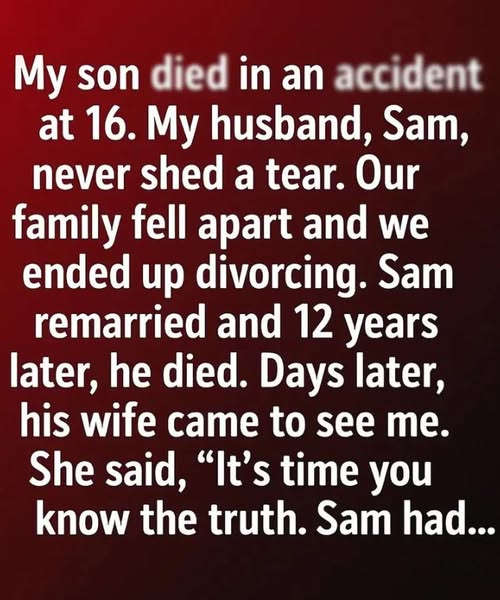Sorrow does not always announce itself with volume. It doesn’t always manifest as tears or echo in wails. Often, it lingers in stillness, in private rituals, in thoughts left unspoken. We might assume others are unscathed by loss because their pain doesn’t reflect ours—yet sorrow wears countless masks.This narrative serves as a poignant reminder that a calm facade may conceal a love and anguish far deeper than we can fathom. Before we form opinions on how someone grieves, we must pause to hear them—with empathy, not preconceived notions.
The Full Story
My son passed away at 16. My husband, Sam, never let a tear fall.
Our family grew distant, and in time, we parted ways through divorce.
Sam found love again and remarried, but 12 years later, he too passed away.Days after his passing, his wife sought me out.
She spoke gently, saying, “It’s time you know the truth. Sam had …”
She handed me a small wooden box.
Its edges were worn smooth, as if touched countless times.
Inside lay dozens of envelopes, each sealed with care, my son’s name written neatly across the front.
“Every year, on his birthday,” she shared softly, “Sam would visit a quiet hill and write to him. He kept this private, but this was his way of grieving, of staying connected. He bore this sorrow in silence all those years.”I sat for hours, clutching those letters, overwhelmed by what I held.
One by one, I opened them.
The pages brimmed with memories of our boy—his laughter, his aspirations, his radiant smile.
Some letters held apologies for moments Sam longed to redo; others were simple affirmations of love.
For years, I had believed Sam was distant, unmoved by our tragedy. I thought his silence signaled apathy.
But through those letters, I saw the reality: he had mourned in his own way, quietly and steadfastly.
Tears poured down my cheeks.
They fell not only for my son but also for Sam—for the man who carried his grief alone, unsure how to share it.
The Lesson
Sorrow reveals itself in many forms. Some weep openly, some pour their hearts into words, and some guard their pain in silence.
The absence of familiar expressions of grief does not mean the heart is untouched.
Empathy, not judgment, fosters true healing.



